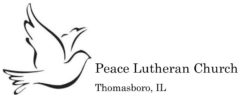Chances are, you’d be surprised to see the difference sleeping for eight hours every night can make. It can help convert into a far better mood, higher energy levels, sharper mental alertness, better health, and more. Even if that’s not the case and you still fully support each other, hanging with others getting drunk or high will only tempt you. Being around them can at any moment trigger a relapse, so stay away or keep it at busy, formal meeting places. No amount of sentiment is worth your health, happiness, and especially your sobriety!
The process of grief doesn’t have to be compounded by loneliness and you don’t have to go through it alone. You can ask questions about our program, the admissions process, and more. Joseph Gilmore has been https://ecosoberhouse.com/ in the addiction industry for three years with experience working for facilities all across the country. Congratulations on this opportunity to restart a new life and become the best version of you.
Faith, Recovery, and Breaking Generational Chains of Addiction
Genetics plays an important role in conferring vulnerability to addiction. Genetic factors influence how substances are metabolized and experienced. Such biological differences can influence whether substance use continues and increases, rebuilding your life after addiction remains “social” and occasional, or does not occur at all. Substance abuse treatment programs can help you develop a long-term, realistic treatment plan that gives you the tools, support, and structure you need to recover.
- You have gone months, years, or decades getting through life with the crutch of your drug of choice, and now, you are re-entering the world sober.
- Another thing to be careful of is to avoid replacing one addiction with another.
- These people could be guilt trippers, or jealous people and might try to control your life again.
- Having a “parachute” ready for such eventualities takes a little preparation and knowledge that some situations (such as a social event or party) will in fact be high risk.
- You will be surrounded by supportive, encouraging experts that will help you learn skills for success.
- In some cases, the relationship never returns to what it was prior to the chaos and heartbreak of addiction.
Like other such diseases, you can get treatment but there usually isn’t a real cure. Your addiction can be managed successfully, though, just like heart disease or asthma. When a person leaves rehab, they are given an aftercare plan. This plan usually consists of a list of names of people to call for support.
Life After Addiction Can Be Rewarding
A career is a form of identity and the field of work which a person performs will say a great deal about that person. Career counselors work with clients to narrow down what kind of job they want. Jobs with a lot of exposure to alcohol and stress, notably in the service industry, are unlikely to meet the criteria. Certain jobs can legally disqualify employees who have a background in an abuse scandal or felony convictions and this need also to be factored into job searches.
At home, it’s easier to get food that comes through a window than to cook for oneself. The type of support community is not as important as engaging with the group and getting support in the early days of recovery. When a person has addiction issues, they may be afraid of what is involved in the recovery process. Discover our tailored treatment options and start your journey to lasting recovery today. At Sober Life Recovery Solutions, our team has the experience and expertise to help guide your journey.

